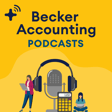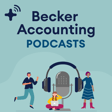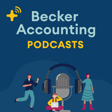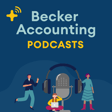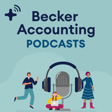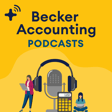
Balancing the Future Ep. 15 - 150 Hours from Two Perspectives with Marlene Alexander & Crystal Cooke
Join host Christopher Mitchell as he speaks with two experts about the much-debated 150 credit hour requirement for CPA licensure. Marlene Alexander and Crystal Cooke each share their unique perspectives on the issue, covering topics like the regulation’s history and origin, why it has served the profession, if it still serves in this capacity, and what a change would require. Compare insights surrounding this controversial topic and learn new perspectives about reframing the criteria and its implications.
Earn CPE by listening to this podcast through a Becker Prime CPE subscription.
Listen to this episode through your Becker LMS platform to complete practice questions, pass the final exam, and earn CPE credit.
Already a Becker Prime CPE customer? Login here.
Have access to Becker CPE through your employer? Earn CPE credit for this podcast however you consume Becker CPE, either through your company’s LMS or via the Becker platform. Not sure where to log in? Check with your CPE admin.
Learn more about CPE Podcasts from Becker: https://www.becker.com/cpe/becker-podcasts
